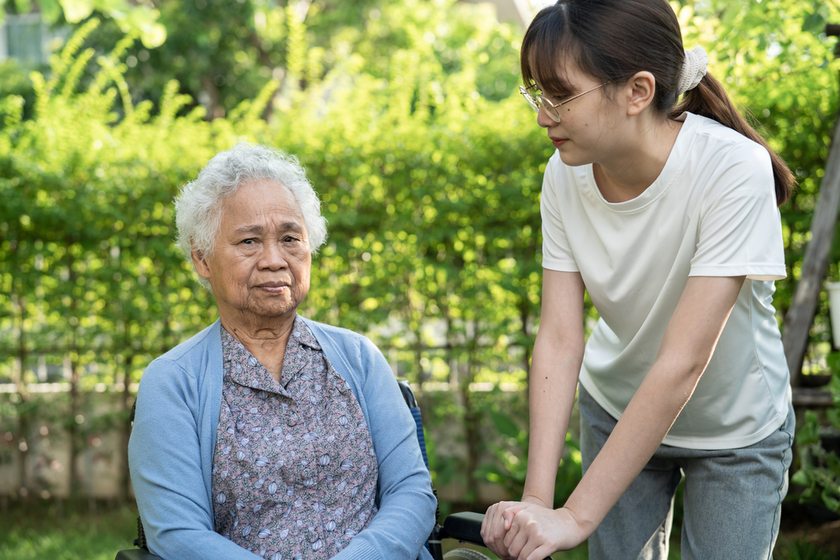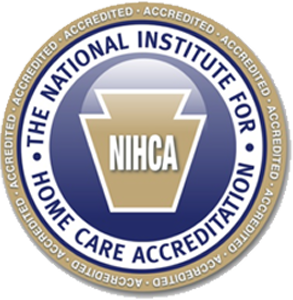
Sometimes, an elderly parent refuses help, preferring their independence. It’s a common hurdle in ensuring the well-being of our loved ones. But why do they resist, and what can you do? Growing older shouldn’t mean losing control, and fear of precisely that often leads to refusal.
When an elderly parent doesn’t want any help, a personalized approach makes all the difference. Our home care agency provides tailored in-home care in New Jersey. Every family is unique, and so are their needs. Our home health aides bring a personal touch, respecting your loved one’s desire for independence while ensuring their safety and well-being.
Understanding the Root of Resistance
When an elderly parent denies assistance, it’s not easy. Their refusal can stem from various sources, and it’s only sometimes about pride or independence. Identifying the root cause could make things simpler.
Sometimes, it’s about fear. The fear of losing their independence or feeling burdened can push them to refuse help. Aging is a process, and accepting help could signify, in their minds, an inability to perform basic tasks. Recognizing this fear can open up avenues for conversation.
At times, the decline in physical health could also elicit denial. Old age can bring about numerous health issues, making it difficult for them to accept their changing physical state. This denial can result in a refusal to accept help, making it hard for the team members in the community. By understanding this, we can tailor our approach accordingly.
Effective Communication Strategies
Getting through to an elderly parent who refuses help demands effective communication strategies. Implementing these communication tactics can sometimes make all the difference. Patience is key, and so is persistence. Make sure to listen to your parents’ concerns and acknowledge their feelings. By giving them a voice, you make them feel understood, which can make them feel more comfortable accepting help.
One strategy can be to involve them in decision-making. Grant them autonomy where possible. This could include letting them decide which tasks they need help with and which they believe they can handle themselves. Involving them in decisions can make them feel more in control, making them more likely to accept help.
Remember, communication is a two-way street. Ensuring your parent feels heard, understood, and respected can make a significant difference. In-home care professionals can be a source of not just support but also of understanding and respect. It’s not about offering help but in a way they are willing to accept.
Exploring Alternative Options for Support
There are different ways to offer support to an elderly parent who declines help. One could look into alternative forms of aid that may be more easily accepted.
For instance, newer technologies can provide subtle support. Think of gadgets that remind them to take their medication or security systems that alert you if your loved one has fallen. Technology has been subtle yet helpful for older people to maintain a sense of independence.
Another approach could be to introduce peer support. Finding friends within your community who’ve been through a similar experience might have more successful appeals. It can be comforting for an elderly parent to know they’re not alone—others are on a similar journey.
Leveraging Professional Guidance and Resources
Turning to a professional might be effective when a resident needs help but refuses. Psychologists or geriatric care managers are professionals experienced in dealing with elderly resistance. They can provide family members and loved ones with strategies to break this resistance.
Remember the wealth of resources available at your disposal. Look at books, online publications, or seminars focusing on eldercare. These can provide a fresh perspective, new strategies, and more coping mechanisms to deal with an elderly parent’s denial of help.
Navigating Legal and Ethical Considerations
Discussing refusal of help can only be done by addressing legal and ethical facets. Maintain respect for an elderly parent’s autonomy—even if it seems against their best interest. We must acknowledge their rights and dignity.
Legal documents like durable power of attorney and health care proxies can help make decisions when cognitive decline is a factor. Having these documents in place beforehand can prevent surprises during a health crisis. It’s always a balance between protecting a loved one’s best interest while respecting their autonomy.
Bridging the Gap with Personalized Care
Our commitment to delivering premier home health aide services stands firm. We bridge the gap between independence and support, providing services exclusively within New Jersey to ensure your loved one receives the highest quality of care where it’s most comfortable: at home. Reach out to our team today, and let’s start a conversation about how our home health aide services can uplift your family’s life in New Jersey.
The level of care your loved one receive depends on their needs. We have the healthcare pros to make that perfect fit and keep them safe & content right at home!
We offer:
- Daily Living Assistance; including things like bathing & dressing
- Transportation Services
- Housekeeping
- Companionship Services; including recreation & conversation
- AND MORE!
Get in touch with us! We’ll be happy to set up an appointment to assess your situation and offer the services you need for your loved one to live their best life!
We offer:
- Daily Living Assistance; including things like bathing & dressing
- Transportation Services
- Housekeeping
- Companionship Services; including recreation & conversation
- AND MORE!





